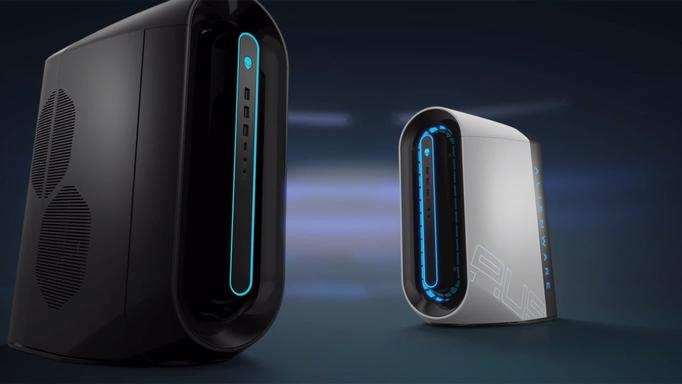Dell Cannot Ship Alienware PCs to Certain US States Due to Power Regulations
Sometimes the fight for energy efficiency and low power consumption takes rather ugly forms. High-performance desktop gaming PCs obviously consume a lot of power and their relative power efficiency is lower when compared to that of small form-factor systems. Which is why Dell can no longer ship some of its Alienware gaming desktops to California, Colorado, and some other states. There are a number of catches though.
Dell's high-performance Aurora R10 and Aurora R12 (both Intel and AMD-based) desktops "cannot be shipped to the states of California, Colorado, Hawaii, Oregon, Vermont or Washington due to power consumption regulations adopted by those states," a notice over the company's website reads. The reason why Dell cannot ship such systems to California is because the California Energy Commission (CEC) adopted tighter appliance energy principles that outline a compulsory energy efficiency standard for PCs starting July 1, The Register reports.

The new standards are largely based on Energy Star Computer Program and define power consumption of PCs (all kinds of PCs, including thin clients and handheld devices) in non-active states (short-idle, long-idle, sleep, and off) as well as their maximum power consumption per year. All types of power consumption are tied to the PC's expandability score (ES) (its concept was described by Energy Star several years ago) that takes into account things like high-performance graphics cards, system memory bandwidth, high-speed external ports, and other things.
Image 1 of 2Image 2 of 2Starting from July 1, 2021, high-end desktops can consume no more than 75 kWhr/year, but if it is equipped with a discrete graphics card or some other adder (from the ES list), its maximum power consumption can be increased based on bandwidth of graphics card's onboard memory. The problem is that even with the adders included, Dell's Alienware gaming systems will not comply with the new requirements.
Dell's Alienware is obviously not the only boutique PC maker in the U.S., but a quick check of other makers of high-performance gaming systems and workstations reveals that they do not have similar alerts for their customers in California and other states. It is unclear whether their systems comply with the tighter requirements, or they are awaiting instructions to update their sites. Meanwhile, it is clear that over time the new regulations will affect all high-performance machines.
It should be noted that the new standards do not cover DIY PCs, so enthusiast who have enough time, effort, and experience can build whatever PCs they like. Furthermore, it is logical to expect PC makers to offer systems without certain components (which will be installed by the end-user) in a bid to comply with tighter regulations, but still offer products to their customers.








